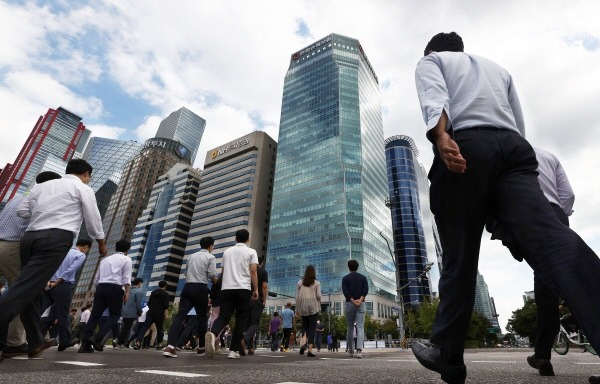Members of South Korea's Generation MZ, or people born in the early 1980s to early 2000s, prioritize income and working time when looking for a job instead of personal development potential, according to a study.
The Korea Institute for Industrial Economics and Trade (KIET) on Thursday released the results of its Graduates Occupational Mobility Survey on 104,511 college grads from 2008-19. The 12-year study used 16 occupational values like income, working hours, aptitude and interest, and job difficulty.
Over the 12-year period, the survey said, factors that grew the most in importance when determining occupational value were working hours and workload.
Conversely, those seeing eroding priority were aptitude and interest, personal development potential and job security.
Income rose from third to first in importance and working hours from sixth to second.
On the other hand, personal development potential fell from first to sixth and employment stability from second to third. Aptitude and interest remained steady at fourth and benefits fifth.
Looking at changes in the occupational values of youth who moved from the provinces to the Seoul metropolitan area, the study found that they prioritized income, working hours, aptitude and interest, and benefits while considering personal development potential and employment stability less important.
Differences were found even within Generation MZ. Generation Z, or those born between 1995 and 2010, had a higher rate of moving between regions or to the Seoul metropolitan area than millennials or Generation M, prioritizing income over security when choosing a job.
"We need customized employment policy and jobs that consider the diversity of human capital and values of youth," KIET said. "Employment policy should focus on jobseekers, not companies."
Write to Yong-Hee Kwak at
kyh@hankyung.com



